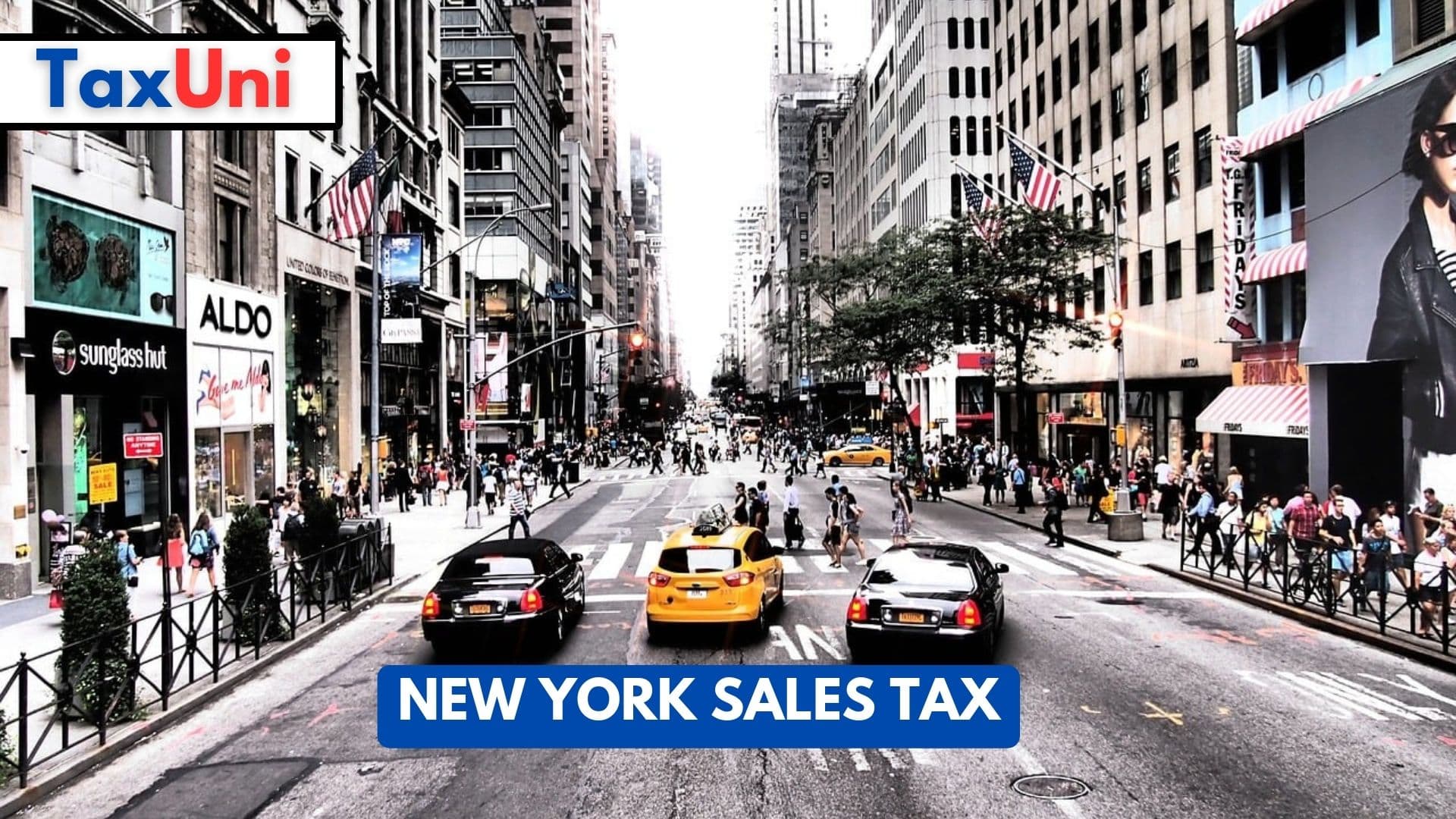New York Sales Tax
A sales tax is a state-imposed tax on certain tangible personal property and services. Like most states, New York has a sales tax and requires businesses to register and file returns.

Having a proper understanding of how to file and pay sales tax in New York is important for any business. The state of New York has several taxes that businesses must collect and remit, including a general sales tax, local sales tax, tobacco tax, and marijuana tax. Regardless of the industry, businesses should always make sure to have up-to-date information on these different types of taxes and their due dates. A sales tax is a tax that a governing body charges on the sale of specific tangible personal property and services. The rate differs by state, with some not charging a sales tax. Sales tax is a significant source of revenue for the state, making up about a fifth of its total tax revenue each year.
For those who are interested in learning more about the laws, regulations, and requirements of sales tax in New York, there are many helpful resources available to help. One of the best places to start is by reviewing the Department of Taxation and Finance’s website, which has a wide variety of information, including detailed instructions on how to file a sales tax return and information about exemptions from the state’s sales tax.
In addition, New York also has a number of local sales taxes, which are levied on various categories of goods and services in the different cities and counties of the state. For example, the city of New York has its own local sales tax on food and beverages, while Albany County has its own sales tax on cigarettes and other tobacco products. Other local sales taxes exist in the counties of Chautauqua, Chenango (outside Norwich), Delaware, Greene, Hamilton, Madison (outside Oneida), Otsego, Tioga, and Wayne.

What is the Current NYS Sales Tax?
New York sales tax is levied on the sale of certain goods and services. It is collected at both the state and local levels, with rates ranging from 4% to 8.875%, depending on county/city. The state sets the sales tax rate, while counties and cities add their own local taxes (often including a transit tax). The state also has some items exempt from sales tax, such as food for home consumption, prescription and non-prescription drugs, and clothing or shoes that cost less than $110.
Sellers must register with the state before collecting and remitting sales tax in New York. They must also keep track of all sales, use tax receipts, and comply with other state and local regulations. In addition to registering, sellers must ensure they are collecting the correct tax rate by using a free NYS sales tax calculator or sales tax lookup tool.
NYS Sales Tax Calculator
The NYS sales tax calculator is simple to use and will calculate the total amount of tax due for each taxable purchase. The calculator will automatically apply the correct combined sales tax rate based on the location of the customer. It will also round up the amount of tax due to the nearest cent, making it easier to collect accurate amounts.
In addition to the sales tax calculator, several other helpful tools are available for sellers in New York. The tax department issues sales tax publications that list the combined state and local rates for each jurisdiction. These publications are updated and reissued whenever a rate change occurs. You can find these publications on the taxation department’s website. If you’re not sure which rate to use, contact a local tax professional for help.





